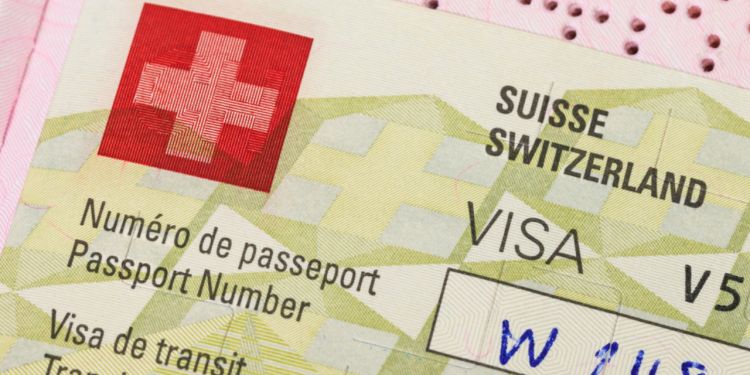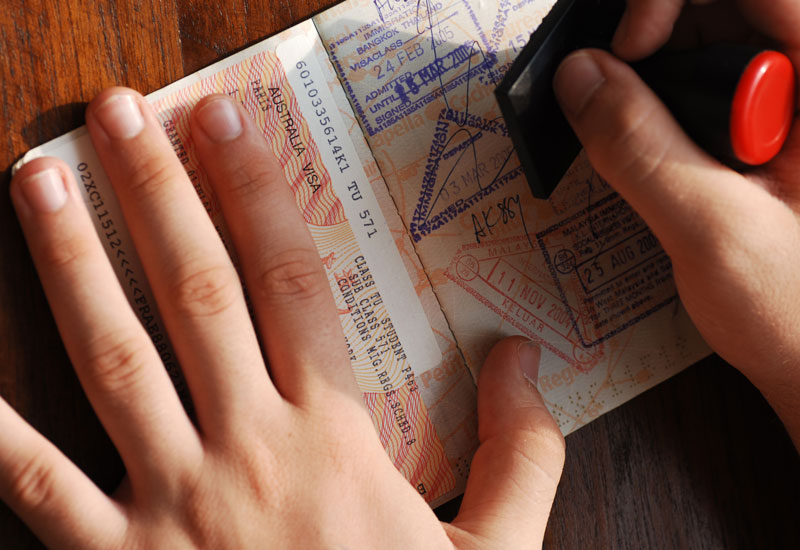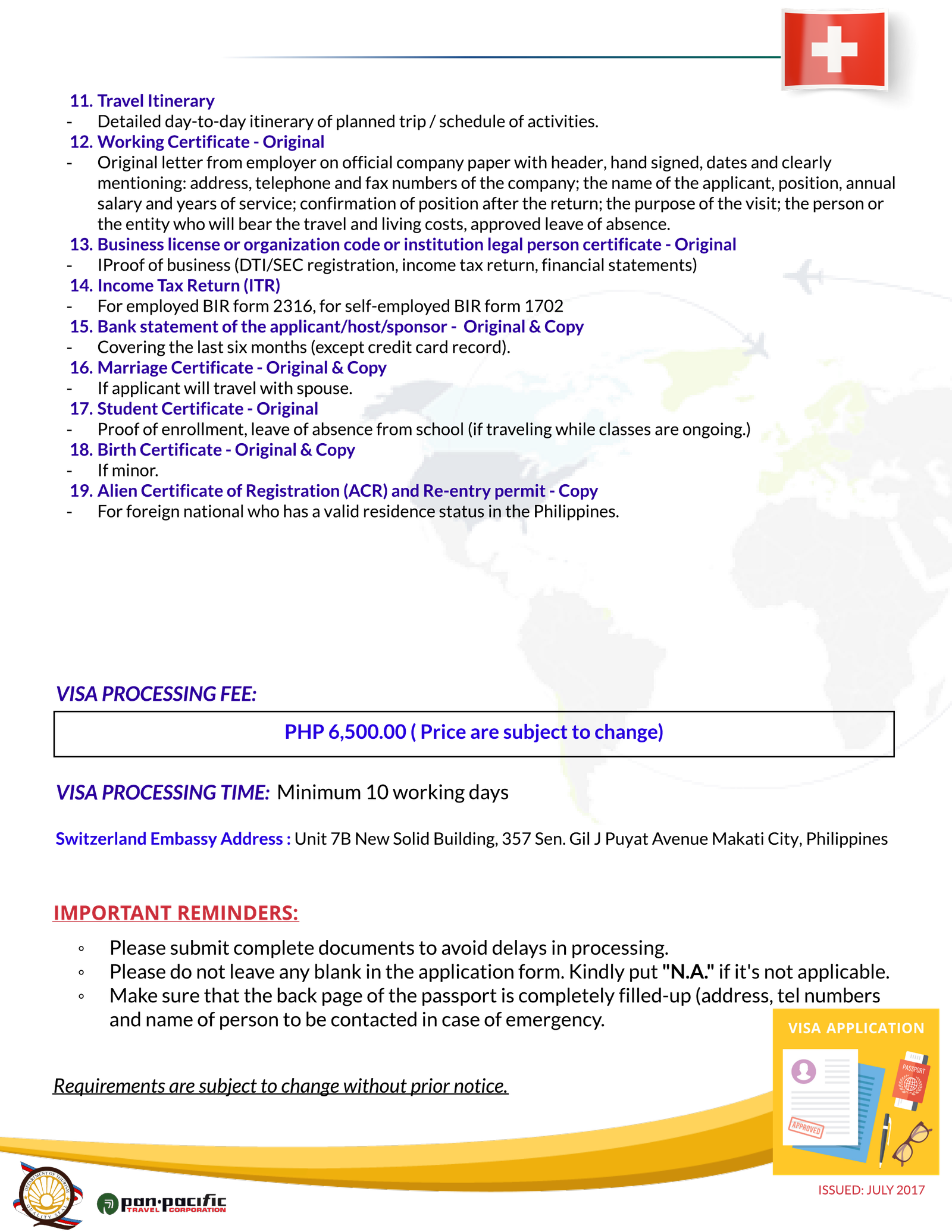
Can Australian citizens work in Switzerland without a visa?
Currently, Australian nationals can enter Switzerland visa-free only for short-term periods of 90 days in any 180-day period for purposes that do not include employment. However, those who wish to work in Switzerland, as well as those who want to stay longer in the country, have to apply for a visa first at the Swiss visa authorities in Australia.
Do I need a visa to visit Switzerland?
You do not need a Switzerland visa if you are: A national of a Schengen-area country. Schengen countries are 26 European countries who have established visa-free and border control-free travel amongst them. A national from a member state of the EU (European Union) or EEA (European Economic Area).
How long can you stay in Switzerland on a national visa?
Swiss National visa. If you intend to stay in the territory of Switzerland for a total of more than 90 days (at least 91 days) during one or more visits within a half-year period calculated from the date of first entry, you need to apply for a national visa.
What is a Switzerland work visa?
The Switzerland work visa is the Schengen category D visa for stays of more than 90 days.

Can Australians enter Switzerland without a visa?
Switzerland has removed the requirement for Australians wishing to work or reside long-term in the country to apply for a visa as of 1 January 2022. Although some Australian nationals may still need to apply for a local work or residency permit, they are now exempt from Switzerland's visa requirements.
Can Australian citizens enter Switzerland?
There are no COVID-19 related restrictions for entry into Switzerland.
Do Australians need a visa for Europe?
Will Australian citizens need a visa for Europe? No, Australians do not and will not need a visa to enter Europe. Their visa-free status will remain unchanged. However, from November 2023, Australians must get an ETIAS, a new entry requirement for Europe.
Which country can visit Switzerland without visa?
Non-EU nationals: Americans, Australians, British and Canadians can travel to Switzerland, and any other Schengen countries, without a visa for up to 90 days in any 180-day period.
Do Australians need a visa for France?
Australians do not always need a visa for France and other Schengen Zone countries as they are granted visa exemption for short stays. However, they will need an electronic travel authorization once the France ETIAS for Australian citizens is launched.
Can an Australian buy a house in Switzerland?
Can foreigners buy a property in Switzerland? Yes, but there are restrictions imposed at a national, regional and local level on where and what foreigners may buy. Foreign property owners may occupy their property in Switzerland for up to six months per year.
How many countries can Australian citizen travel without visa?
The Australian passport currently ranks on the 8th place according to the Guide Passport Ranking Index. It provides visa-free access to 189 countries.
Do Australians need a visa for Sweden?
Australian citizens don't need a visa for travelling to Sweden.
Do Australians need a visa for Germany?
Australian citizens are allowed to travel to Germany and to stay in Germany for up to 90 days without having to apply for a visa, as long as their passport is valid for the entire duration of the stay and as long as they do not engage in any kind of employment in Germany.
Which passport is the strongest in the world?
the Japanese passportIn 2022, the most powerful passport in the world in terms of travel freedom is the Japanese passport, according to the HPI. A passport issued by Japan allows the holder to enter 193 different countries and territories without having to get a visa in advance. Singapore and South Korea are tied for 2nd place.
Do I need Schengen visa for Switzerland?
To travel to Switzerland for a short trip lasting fewer than 90 days, you will need a Switzerland Schengen Visa, as it is part of the Schengen Area of European countries that have abolished border controls.
How long can you stay in Switzerland without a visa?
90 daysKeep track of your time in the Schengen area: You can travel up to 90 days visa free in Switzerland and the Schengen area. Currently, 26 European countries are members of the Schengen area.
Is tourism Open in Switzerland?
As such, tourists arriving in Switzerland will find that most of the places are open, including cafes, restaurants, shops, museums, parks, hotels, thermal baths, beaches, and so on.
Is Switzerland allowing us tourists?
The entry restrictions currently in place will be lifted from 2 May. As of that date, the usual rules for entering Switzerland will apply. You will find information about visas, travel documents, etc.
Is Switzerland in NATO?
Europe. Six EU member states, all who have declared their non-alignment with military alliances, are not NATO members: Austria, Cyprus, Finland, Ireland, Malta, and Sweden. Additionally, Switzerland, which is surrounded by the EU, has also maintained their neutrality by remaining a non-EU-member.
Schengen visa for a stay of up to 90 days
For persons wishing to enter Switzerland for a short stay of up to 90 days within a 180-day period: for example, in a context of tourism, a visit to relatives or friends, short-term language studies, participating in a conference or in sporting/cultural events, etc.
National visa for a stay of more than 90 days
For persons wishing to enter Switzerland for a stay of more than 90 days within a 180-day period. It is subject to the authorisation of the cantonal migration authority competent for the intended place of residence. For example: long-term student, family reunification, marriage in Switzerland, etc.
Airport transit visa
For citizens of certain countries who need a transit visa even if they are staying in the international transit area of the airport and do not enter the Schengen territory.
Why exercise a high degree of caution in Switzerland?
Exercise a high degree of caution in Switzerland due to the impacts of COVID-19.
Can you be expelled from Switzerland?
Penalties are severe. If you’re convicted of a crime and you're a foreign national, you may be expelled from Switzerland, and you may not be able to return for a long time. Full travel advice: Local laws.
Does Switzerland have reciprocal health care?
The standard of medical facilities and care is similar to Australia. Switzerland doesn't have a reciprocal health care arrangement with Australia. Medical costs can be extremely high. Hospitals, doctors and medical centres may ask for payment before treatment if you don't have medical insurance.
Do you have to quarantine after entering Switzerland?
If you've been in a country with a variant of concern in the last 10 days before entering Switzerland and have not been vaccinated, or are unable to prove that you have recovered from COVID-19 in the last 6 months, you must go into quarantine after entering Switzerland.
Can you bring prescriptions to Switzerland?
You can only bring prescription and non-prescription medication into Switzerland if it's for personal use.
Can you return to Switzerland if you are convicted of a crime?
If you’re convicted of a crime and you're a foreign national, you may be expelled from Switzerland, and you may not be able to return for a long time.
Is there a travel ban for Australia in 2021?
23 March 2021. There's a ban on overseas travel from Australia. You can’t leave Australia unless you have an exemption from the Department of Home Affairs, or are travelling to a destination that is exempt from the ban. Our global travel advice remains at ' Do not travel ' due to the health risks from the COVID-19 pandemic and ...
What is a Swiss airport transit visa?
An Airport Transit visa for Switzerland (A-visa) allows the holder to enter the transit area of a Swiss airport in order to catch a connecting flight to another country. The Swiss airport transit visa does not allow the holder to leave the transit area of the airport.
Why do people stay in Switzerland for 3 months?
The reasons for wanting to stay for longer than three months could be due to work, study, or family reunification. Depending on the country, different rules apply in regards to who needs to apply for a long-term visa before they enter Switzerland. Switzerland is not part of the EU, but follows a lot of its similar rules.
How long do you have to have a passport to travel?
You must have a valid passport/travel document issued in the past 10 years.
Do you need a residence permit to travel to Switzerland?
In addition to that, they need to apply for a residence permit as well. Non-EU/EFTA nationals have to apply for the Swiss long-stay visa and residence permit before entering Switzerland. So, everyone, regardless of their nationality, has to apply for a Swiss residence permit for stays that are longer than 90 days.
Do you need a transit visa to fly to Switzerland?
You are not a threat to public policy, internal security, public health or the international relations of Switzerland. You do not have an alert issued against you which refuses you entry. Note: You only need a Swiss airport transit visa if you are catching a flight to a country that is not in the Schengen area.
Do you need a visa to change planes in Switzerland?
If you are changing planes in a Swiss airport, you will generally not need a visa if you meet a set of conditions. Only nationals from a select list of countries will need a Swiss Airport Transit visa. The conditions you have to meet to change aircrafts at a Swiss airport are:
Is Switzerland a member of the EU?
Switzerland is not part of the EU, but follows a lot of its similar rules. That’s because Switzerland, along with Iceland, Liechtenstein and Norway, form the European Free Trade Association (EFTA). The EFTA is united with the EU through the EEA and all the member countries of the EU and EFTA enjoy free market between them. ...
How to get a visa on arrival?
To get a visa on arrival, you usually have to approach the designated Visa on Arrival counter and present a set of documents. Although each country has its own specific requirements, you usually need a variation of the following:
How long does it take to get a visa?
Depending on the country, it can take anywhere from a few minutes to a few hours to receive your visa.
Can an Australian citizen get an evisa?
If you are an Australian citizen, you can get an eVisa to travel to the following countries:
Do Australians Need a Visa for Europe?
No, they do not. Australian citizens can visit the countries included in the European Union or Schengen Zone for up to 90 days without a visa. This includes Austria, Belgium, Czech Republic, Denmark, Estonia, Finland, France, Germany, Greece, Hungary, Iceland, Italy, Latvia, Liechtenstein, Lithuania, Luxembourg, Malta, Netherlands, Norway, Poland, Portugal, Slovakia, Slovenia, Spain, Sweden, Switzerland, Romania, Bulgaria, Croatia and Cyprus.
Where to apply for a visa for Switzerland?
If Switzerland is the only country you plan on visiting within the Schengen Area, you should apply to the Switzerland representative body responsible for visa admission, located in your country of residence.
How long does it take to get a Swiss visa?
The processing time for a Switzerland short-stay visa may take up to 15 days. Still, according to your specific situation, this period may be extended up to 30 days. Exceptional cases may take up to 60 days, since the Swiss embassies may have to consult with other Schengen consulates.
What Documents Are Required for a Switzerland Visa Application?
As a traveller in need of a visa, you will have to meet several Switzerland visa requirements in order to complete your application. The statutory Switzerland visa requirements are as follows:
How to Apply for a Swiss Short-Stay Visa?
In order to complete the application process to obtain a short-stay visa to Switzerland, you must follow these steps:
Can My Swiss Schengen Visa Be Revoked?
Yes, your Switzerland visa can be revoked, in case the competent Swiss authorities conclude that the conditions for issuing the visa are no longer met.
Can a Swiss national come to Switzerland?
If you are the spouse (husband/wife) of a Swiss national, and you wish to come to Switzerland for a short-term visit, then you will need to apply for a special visa established solely for this category of visa applicants.
Do you need a visa to enter Switzerland?
You will need a short-stay visa to enter Switzerland and any other member country of the Schengen zone, if you belong to one of the following categories:
Who needs a work visa for Switzerland?
Switzerland operates a dual system when it comes to the right to seek employment in the country, with rules depending on whether or not you are an EU/EFTA citizen.
How long can you stay in Switzerland on a work visa?
The Switzerland work visa is the Schengen category D visa for stays of more than 90 days.
What is a work permit in Switzerland?
This differs from your work visa, which is the document you need to enter Switzerland and present to border control. Whereas you are responsible for making your visa application, your Swiss employer applies to the cantonal migration authorities for your work permit.
How long do you have to report to Swiss immigration?
Although your employer sorts out your Swiss permit before you arrive in Switzerland, you will need to report to the cantonal immigration office that issued your permit before you start working for your Swiss employer and no later than 14 days after your arrival.
How many foreigners work in Switzerland in 2019?
There were around 1.7 million foreign workers in Switzerland at the end of 2019 – that accounts for roughly 20% of the national workforce. Many work in high-skilled jobs in leading sectors such as banking, pharmaceuticals, and food retail. The quotas for Swiss work visas for 2021 are:
How long does a B permit last in Switzerland?
For contracts lasting longer than 12 months , you get a B permit, which can be renewed each year. After ten years in Switzerland (or five years if you’re from the EU/EFTA, the United States, or Canada), you can apply for a settlement permit if you want to. You cannot enter Switzerland as a tourist and then take on work.
What countries are Switzerland training?
This program is open to citizens of the following countries: Argentina, Australia, Canada, Chile, Japan, Monaco, New Zealand, the Philippines, Russia, South Africa, Tunisia, Ukraine, and the US.
